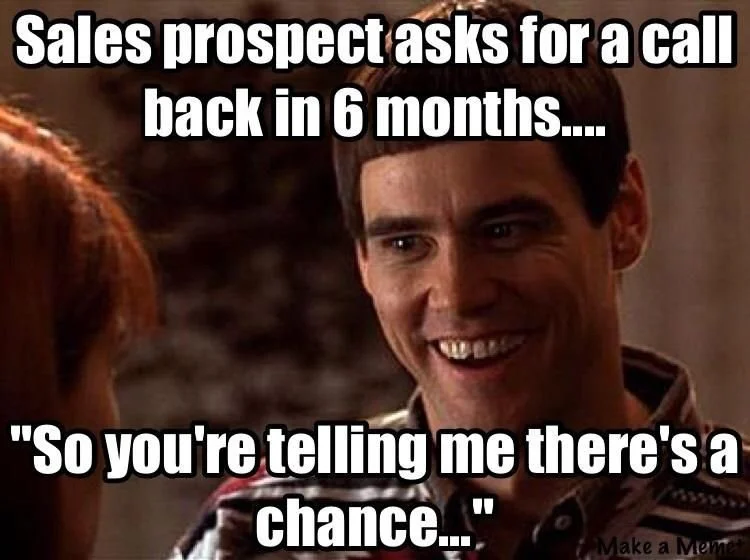Career Options for Pharmacists in Industry
Doesn’t get much more boss than this, am I right? Sure, there’s the Braveheart or Gladiator speeches… But c’mon, it’s Aragorn. (Image)
Steph’s Note: (Warning, nerd alert.) If you’re a Lord of the Rings fan like I am, you know how boss The Return of the King is. Well, this week on tl;dr, we have The Return of the Queen…of Industry. Also boss.
Please welcome back AnnMarie Mohan, who previously shed light on the possibility of working in the pharmaceutical industry without a fellowship. This time, she’s here to more fully describe what some of those confusing Industry job roles actually entail so you can begin to consider which one(s) sound interesting. I don’t know about you, but I’m pretty sure I had never heard of an MSL when I was in pharmacy school! So you’ll be ahead of the game, thanks to her.
Alright AnnMarie, what can we do as pharmacists in Industry?
Ah, now we are getting to the good stuff.
It's been a minute since we last discussed opportunities for pharmacists in Industry. So I’m pretty excited to get back to it to start digging into Industry life and how to get there.
In my personal experience, it was difficult to find a place that had information about Industry roles. When I did find information, it was scattered all over the place. While I don’t have all the answers and I don’t claim to be the foremost expert, I will do my best to start pulling this information together. For many of you, this will be a great starting place as you start to delve deeper into roles and areas of interest.
One of the most essential things I mentioned in my previous post was the need to research and understand what functional area you may be interested in. This is how you learn to leverage your skills, speak to your strengths, and network with the right people. Most importantly, how can you be sure you are choosing the right role if you don't know anything about it or what you will be doing?
“When pharmacy students are in trouble, I am not slow. It’s hip-hip-hip, and away I go!” (Image)
Have no fear. That’s why I’m here.
Going forward, my posts will provide background on roles for PharmDs and additional information to assist in your research and path to Industry. I'd like to take time to get more granular with some of these roles to really give you as much clarity as possible.
However, I want to caution that this information is based on my personal research and experience with Industry. It is in no way affiliated with any particular company or manufacturer. (In fact, roles and responsibilities may differ between organizations, so think of this as a stepping stone as you continue to learn.)
So, with that out of the way, what can pharmacists do in Industry?
Medical Science Liaison (MSL)
An MSL is a field-based role within Industry that is highly scientific and requires an advanced degree (MD, PharmD, etc.). These are the folks that speak to physicians (separate from Sales Reps), P&T committees, insurance companies, formulary decision-makers, etc. In a nutshell, these individuals reach out to Key Opinion Leaders (KOLs) and various Healthcare Professionals (HCPs).
Their focus is on clinical concepts, and their depth of knowledge on a product or disease state goes well beyond the Prescribing Information (PI). Most MSLs are experts in a specific functional area, e.g., cardiology, immunology, or oncology, versus one particular product. Specificity allows them to dive deeply into clinical details typically asked by KOLs who are (usually) subject matter experts (SMEs) in their own right.
Why is this a field-based role?
Most MSLs need to travel within a particular geographical area to support other members of their team and the organization. Most organizations tend to have fewer MSLs than Sales Reps because they are not necessarily making calls to a physician's office. Instead, MSLs may use their knowledge in conferences, meetings, and visiting larger organizations (insurance companies, hospitals, oncology infusion centers, etc.) where a greater depth of clinical expertise is needed. They likely travel to various areas to deliver these key messages.
If you are interested in MSLs, a great resource is the Medical Science Liaison Society.
Sales Representative
These are the folks you think of with a rolling briefcase, schmoozing with physicians, and bringing fancy lunches to the doctor's offices. Most of these folks may NOT have an advanced degree or even a scientific background (some do, it just may not always be a requirement). What do they have? Charisma, persuasion, and the ability to sell ice to an Eskimo (most times).
Sales reps got game. (Image)
A significant distinguishing factor between Reps and MSLs is the level of scientific detail and knowledge. As mentioned, most Reps are not always scientifically trained. They are usually only allowed to discuss the clinical information within the US Prescribing Information (PI) and are provided with specific guardrails to help guide their messaging to physicians and office staff.
While they may not know all the gritty details, they are generally well-versed in the clinical trial details, primary and secondary outcomes, and pertinent safety data. Most, if not all, companies require Reps to sell on the clinical information before mentioning any additional manufacturer benefits (we call this intent to prescribe).
Don’t be fooled… Just because they don’t usually know the depth of information that an MSL does, Sales is by no means an easy job! Sales Reps in most companies are evaluated based on their sales performance, usually referred to as KPIs (Key Performance Indicators). Additional incentives and commission opportunities usually exist, but the metrics involving this may differ per product, organization, and brand structure.
The power of positive thinking in Sales! (Image)
Keeping all this in mind, you can begin to understand why Sales can be very difficult. If you are representing a product that is new, in a crowded market, or just relatively unpopular, your KPIs and commissions may be difficult to attain. That is, no sales = low KPI = no commission.
Reps usually need to invest a lot of time in something called "pre-call planning," which is essentially the need to study the physicians they will be visiting. They should understand certain details about the area they manage, for example:
Product landscape - what's the competition, and where does this product fall in the class?
Patient demographics - who are the patients that will be good candidates for the product?
Top insurers for that prescriber - does the prescriber have a top plan for the majority of their patients?
Access - is the product covered, and what does that coverage look like? Is it open, or is a prior authorization required? Do other therapies need to be tried first (aka step-therapy)? Or is it not covered at all?
How it feels when you realize you missed an essential part of your job - like knowing how to get patients access to therapy. (Image)
This is not a comprehensive list, but these are general questions most Reps need to be prepared to answer or at least discuss with a prescriber. There’s nothing worse than convincing a prescriber to FINALLY write your drug, but then you don't know if it's covered or how to help patients get on therapy.
So you may be wondering, why do the Reps need to help patients get on therapy? Well, an HCP writing a prescription is usually not enough for many Reps or their KPIs. For the vast majority of organizations and brands, Reps do not meet their KPIs and incentives until the patient actually gets the product.
Hence, many Reps may help the office staff with the prescription processing, such as paperwork, prior authorization needs, and anything else to help get the prescription to the patient. This is one of the reasons being a Rep is field-based with a lot of travel. Their presence is typically helpful for the office if there are issues, and they build a rapport with the HCP and staff.
I do want to caveat that many organizations also have a dedicated team of specialists whose primary function is to support getting the patient on drug (we will discuss this role in another post). BUT these specialist teams do not exist for all products and brands, so most Reps still need to know how to support the offices they call on.
Medical Affairs
This department acts as the connection between the development of clinical concepts and clinical practice. Its primary goal is to find a way to demonstrate and effectively communicate the value of a particular product. These folks generally have an advanced scientific degree (PharmD, MD, Ph.D.) and need in-depth knowledge of the product, product strategy, and how to incorporate these concepts into a customer's need.
Depending on the organization, Med Affairs (sometimes referred to simply as "Medical") may be required to support the development of publications that provide insight into the product's clinical benefits. In addition, they may be called on to support other functional areas to provide scientific expertise, such as Sales and/or MSL training. They may also be required to provide additional support if providers reach out to organizations directly with clinical questions.
While this role and its responsibilities may differ across organizations, in general, they need to be able to support various internal partners, such as Sales, Marketing, Promotional, Clinical, and many others. Externally, they need to support KOLs, HCPs, and other organizations looking for a deeper dive into the clinical abilities of the product.
Also, Pfizer has a few Medical Affairs fellowship opportunities, and their brochure may be able to provide additional details on the role.
Drug Information (DI) and/or Medical Communications
DI specialists are typically individuals who provide detailed information about a drug/product, toxicology, adverse events, and other specific details. An advanced degree is usually required, and PharmDs are highly preferred. After all, who best to support drug information than a drug specialist?
Yes, I know this sounds like Medical Affairs… And in some cases, DI may fall within a broad Medical Affairs department. But the role of DI is slightly different. Similar to Medical Affairs and MSLs, they may need to speak with KOLs, HCPs, and other clinicians to provide clinical information. What makes this different from MSLs is their interactions' focus and intent and the required depth of knowledge. Depending on the product strategy and need, their roles may be internal and/or external.
As mentioned with Medical Affairs (and why this role may fall within a broader class), these folks help develop the medical communication plan for a product via publications, research, presentations, and the like. In addition, they may analyze data and literature to provide recommendations on how to best promote the clinical chops of the product, especially given market conditions. In other words, given the available data, how can we compliantly use this information to set ourselves apart from the competition?
Drug Information, Medical Communication, and Medical Affairs are similar roles. But, more importantly, they are roles where PharmDs thrive. The underlying theme for these positions is the need for subject matter experts (SMEs) who understand the clinical information of a product… Who’s better suited than a pharmacist – THE drug expert?
Regulatory Affairs
(Image)
This is always a fellowship fan-fave (which is why I'd be remiss if I didn't mention it in this list). Recent numbers show that Regulatory Affairs is the most highly sought fellowship position amongst applicants. Does anyone know what they actually do?
Anyone?
Seriously, anyone?
Most students have a vague understanding of this role, with responses like, "Well, it's Reg…so you're managing or controlling something?"
Technically yes, but the what and the why are the critical aspects. In simple terms, Regulatory Affairs are the folks that ensure the organization is following all FDA guidelines to support compliant business practices. This is a role where direct entry is improbable. You will likely need to have either a fellowship or some similar training that focuses on compliance in a pharmaceutical setting. FDA requirements can be precise and detailed, and this additional training is usually necessary for the company to be sure their butts are covered.
Regulatory comes in all shapes and sizes depending on the department, but they are most visible in the commercial sector. This role relates to promotional/marketing, aka anything likely to be seen by an external-facing customer. In other words, think of it this way…
You know the 20 different drug ads you see on any given day? How about the brochures available in your doctor's office? Or even the sales materials the Sales Reps and/or MSLs use when visiting HCPs, KOLs, or anyone else?
Well, Gretchen, actually the Regulatory Affairs folks would disagree. Exercise that attention to detail!!
All of these materials MUST be vetted by a Promotional Review Committee, which includes Regulatory. This individual is responsible for reviewing the materials and ensuring they meet all compliance measures from the FDA. These can be as specific as logo size, trademark attributes, and even font size just to name a few! The materials also need to be clinically compliant, free of ‘claims,’ and ‘balanced’.
Regulatory advisors must also focus on the organization’s requirements and safeguard internal interests. Most organizations have rules to help ensure compliance and prevent potential issues, and Regulatory is partly responsible for preserving these needs.
Given the popularity and the training that is needed, most fellowships offer at least one role in Regulatory Affairs. You will likely find more information easily by looking into these opportunities.
The tl;dr of Pharmaceutical Industry Careers
Although getting into any role within Industry requires a lot of work and effort, opportunities in Medical (Affairs, Communications, etc.) tend to be the most straightforward transitions, and Industry is more likely to give you a shot given your PharmD training. This is not to say other opportunities do not exist or are impossible. But if you’re focused on bypassing a fellowship and moving directly into Industry, these are your paths of least resistance.
As mentioned, Sales is also a viable step in the Industry direction. There are varying opinions about this route, especially since a scientific degree is not required. Some say that PharmDs should not 'waste their time and degree on Sales.' I've also heard some PharmDs who started in Sales say they would make the same decision again. Ultimately, the decision regarding what makes sense rests on you – does this step feel logical for you?
An MSL role would be next, but I will share the secret no one wants to tell you. Given the level of depth they are expected to know and the audience they are required to interact with – preference is given to MDs, PhDs, and PharmDs WITH residency training and/or years of practical clinical knowledge (Dr. Dyson would be the ideal candidate). These individuals need to be the best in the business and the smartest in the bunch. Unless you can prove your clinical abilities, sliding into this role directly after graduation will be an uphill battle. Not impossible, but you have your work cut out for you.
This list is not comprehensive, and I will continue to share other roles and opportunities. Consider this post a start to our new series of articles tailored to Industry and the potential that awaits!
If you’re interested in pursuing a career in industry, but don’t know where to start…check out our intensive cohort Roadmap to Industry







